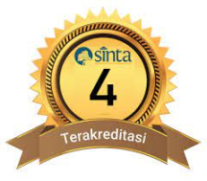Pembuatan e-modul berorientasi higher order thinking skills(HOTS) untuk pembelajaran fisika pada materi kalor dan teori kinetik gas di kelas XI SMA/MA
Abstract
Full Text:
Download PDFReferences
Dewi, Wahyuni Satria dkk. 2018. The Study of Literacy Reinforcement of Science Tecahers in Implementing 2013 Curriculum. ICOMSET 2018. Universitas Negeri Padang.
Sanjaya, W. 2008. Kurikulum dan Pembelajaran. Bandung : Kencana Prenada Media Grup.
Afrizon, Renol dkk. 2017. Analisis Persepsi Mahasiswa Pendidikan Fisika Terkait Pentingnya Pembelajaran Fisika Bermakna yang Menerapkan Unsur Kearifan Lokal Sumbar. Prosiding Semirata 2017 Bidang MIPA BKS PTN Wilayah Barat. ISBN : 978-602-50693-0-8 : FKIP UNJA.
Trianto. 2012. Model Pembelajaran Terpadu. Jakarta: Bumi Aksara.
Kemendikbud. 2017. Panduan Praktis Penyusunan E-Modul Tahun 2017. Jakarta : Direktorat Pembinaan SMA Ditjen Pendidikan Dasar dan Menengah.
Roflah,E.,dkk. 2013. Penyusunan Instrumen Tes Kemampuan Berpikir Tingkat Tinggi Fisika pada Siswa SMP. Jurnal Pendidikan Fisika. ISSN: 2338 – 0691. Vol.1 No.2. Hlm. 17.
Winarso, W. 2014. Membangun Kemampuan Berfikir Matematika Tingkat Tinggi Melalui Pendekatan Induktif, Deduktif dan Induktif-Deduktif Dalam Pembelajaran Matematika. EduMa. ISSN. 2086 – 3918. Vol.3 No.2.
Festiyed dkk. 2018. Penerapan Model Pembelajaran Penemuan Mengintegrasikan Laboratorium Virtual dan HOTS untuk Meningkatkan Hasil Pembelajaran Siswa SMA Kelas XI. Prosiding Seminar Nasional Hibah Program Penugasan Dosen ke Sekolah (PDS). Universitas Negeri Padang : ISBN 978-602-53600-0-8.
Kemendikbud. 2016. Silabus Mata Pelajaran Fisika SMA/MA. Jakarta : Kementrian Pendidikan dan Kebudayaan.
Sugiyono, 2012. Metode Penelitian Kuantitatif Kualitatif dan R&D. Bandung : Alfabeta.
Kemendiknas. 2010. Panduan Pengembangan Bahan Ajar Berbasis TIK. Jakarta : Direktorat Pembinaan Sekolah Menengah Atas.
Riduwan, 2012. Skala Pengukuran Variabel-Variabel Penelitian. Bandung : Alfabeta.
DOI: http://dx.doi.org/10.24036/7285171074








